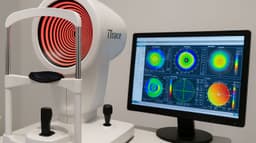
How Many Years Does Laser Eye Surgery Last?
Summary:
Laser eye surgery can provide lasting vision correction for many years, often offering patients a lifetime of improved visual acuity.
Overview
| Procedure | Technology Description | Best Age for Treatment | Expected Duration of Vision Correction |
|---|---|---|---|
| Relex Smile | Uses a femtosecond laser to create a small incision in the cornea, removing a precise amount of tissue to reshape it and correct refractive errors. | 20s to 40s | Long-lasting, potentially permanent |
| Presbyond | Combines LASIK with multifocal lens implantation to correct both near and distance vision, typically addressing presbyopia in individuals over 40. | 40s and older | Long-lasting, potentially permanent |
| LASIK | Involves creating a flap in the cornea with a microkeratome or femtosecond laser, followed by reshaping the underlying tissue with an excimer laser to correct vision. | 20s to 40s | Long-lasting, potentially permanent |
| LASEK | Similar to LASIK but involves lifting a thinner flap of epithelial tissue, rather than creating a thicker corneal flap, suitable for individuals with thinner corneas or certain corneal conditions. | 20s to 40s | Long-lasting, potentially permanent |
| PRK | Involves removing the outer layer of the cornea (epithelium) before reshaping the underlying tissue with an excimer laser, suitable for individuals with thinner corneas or those ineligible for LASIK. | 20s to 40s | Long-lasting, potentially permanent |
| PTK | Phototherapeutic keratectomy is used to treat corneal surface irregularities, scars, or opacities by removing a thin layer of corneal tissue with an excimer laser, helping to improve vision quality. | Varies | Variable, depends on underlying condition and individual factors |
Laser Eye Surgery Lasts How Long?
Direct Response From Sophia, A Patient At My-iClinic:
I had laser eye surgery for short-sightedness when I was 25, and now, 20 years later at 45, my vision is still crystal clear. I haven’t had any issues or needed to wear glasses again, which has been incredible. The procedure corrected my vision perfectly, and because my prescription was stable when I had the surgery, the results have lasted all these years. I believe the longevity of my results is due to a combination of factors: the quality of the procedure itself, the expertise of the surgeon, and the fact that my eyes were healthy and my prescription had stopped changing before I underwent the surgery. It's been one of the best decisions I've made, and I’m still enjoying the benefits two decades later.
Advanced Technology
Laser eye surgery is a transformative milestone, reshaping the landscape of ophthalmology and revolutionising how humans attain clear vision. Over the past few decades, advancements in laser technology have propelled this field forward, offering safer, more precise, and increasingly customisable solutions for individuals seeking freedom from glasses and contact lenses.

Modern developments in laser eye surgery have enhanced the accuracy and efficacy of vision correction procedures and extended the longevity of their results. With cutting-edge techniques such as LASIK (Laser-Assisted In Situ Keratomileusis) and PRK (Photorefractive Keratectomy), coupled with state-of-the-art equipment and meticulous surgical protocols, patients can now achieve and maintain clearer vision for longer periods than ever before.

The Right Age
The optimal age range for laser eye treatment typically falls between the 20s to 40s, as this is when most individuals have stable vision and are less likely to experience significant changes in their prescription. During this period, the eyes are generally healthy and responsive to treatment, making it an ideal time to undergo procedures such as LASIK, LASEK, PRK, and Relex Smile. However, for individuals experiencing presbyopia (age-related difficulty in focusing on near objects), treatments like Presbyond may be more suitable and are typically recommended for those aged 40 and older.
Supplement Your Surgery
In addition to undergoing laser eye surgery for vision correction, maintaining a nutritious diet rich in eye-friendly nutrients can significantly support and prolong the benefits of the procedure. Foods abundant in antioxidants such as vitamin C, vitamin E, and beta-carotene, found in fruits like oranges, berries, and carrots, play a crucial role in protecting the eyes from oxidative stress and age-related macular degeneration. Omega-3 fatty acids, present in fatty fish like salmon and tuna, aid in maintaining the integrity of the retina and may reduce the risk of dry eyes post-surgery. Furthermore, lutein and zeaxanthin, found in leafy greens such as spinach and kale, contribute to the health of the macula, enhancing visual acuity and contrast sensitivity. By incorporating these nutrient-dense foods into your diet, you can complement the benefits of laser eye surgery, promoting optimal eye health and preserving clear vision for years to come.
Find out more by Speaking to our team









